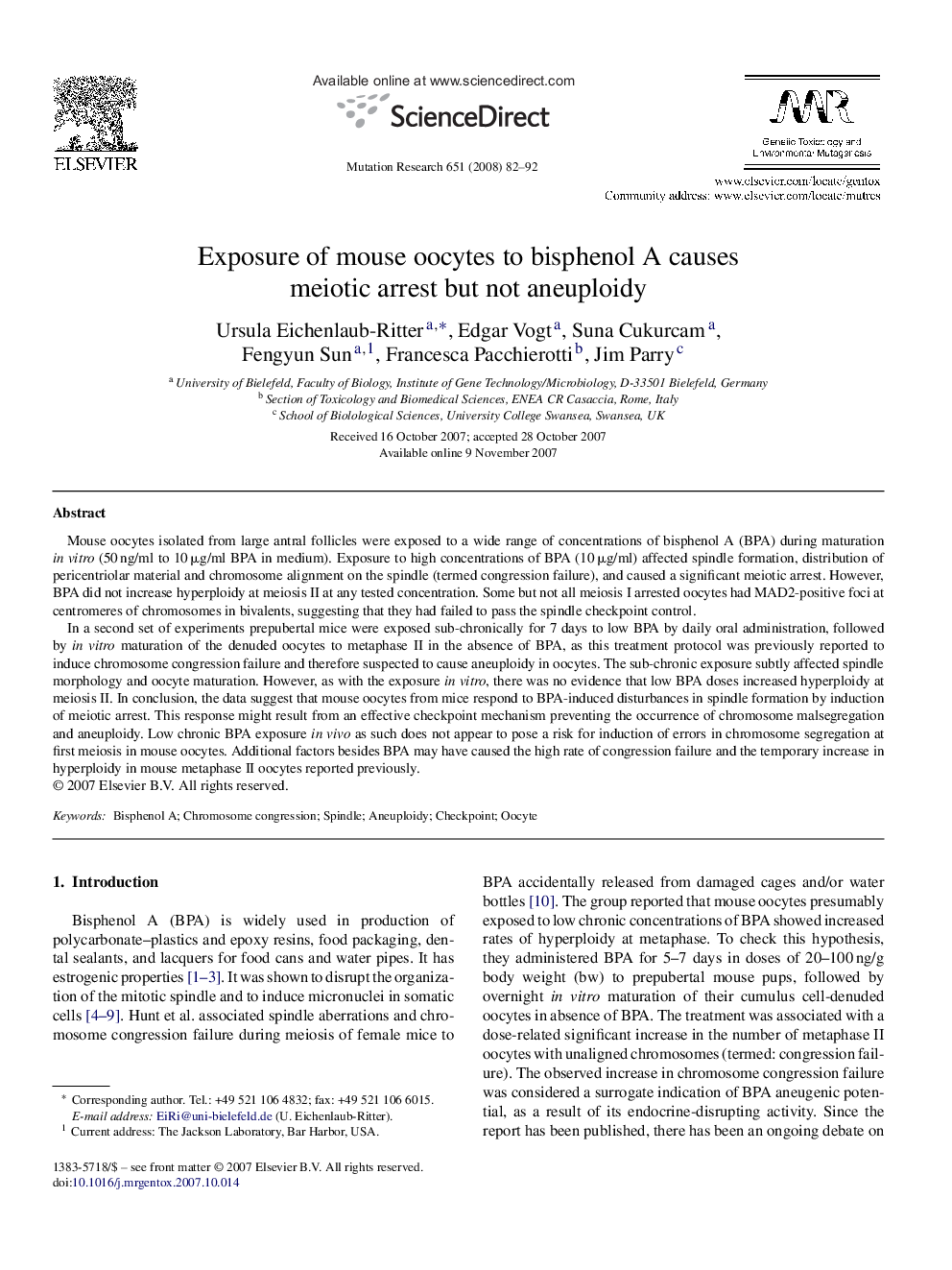| Article ID | Journal | Published Year | Pages | File Type |
|---|---|---|---|---|
| 2148961 | Mutation Research/Genetic Toxicology and Environmental Mutagenesis | 2008 | 11 Pages |
Mouse oocytes isolated from large antral follicles were exposed to a wide range of concentrations of bisphenol A (BPA) during maturation in vitro (50 ng/ml to 10 μg/ml BPA in medium). Exposure to high concentrations of BPA (10 μg/ml) affected spindle formation, distribution of pericentriolar material and chromosome alignment on the spindle (termed congression failure), and caused a significant meiotic arrest. However, BPA did not increase hyperploidy at meiosis II at any tested concentration. Some but not all meiosis I arrested oocytes had MAD2-positive foci at centromeres of chromosomes in bivalents, suggesting that they had failed to pass the spindle checkpoint control.In a second set of experiments prepubertal mice were exposed sub-chronically for 7 days to low BPA by daily oral administration, followed by in vitro maturation of the denuded oocytes to metaphase II in the absence of BPA, as this treatment protocol was previously reported to induce chromosome congression failure and therefore suspected to cause aneuploidy in oocytes. The sub-chronic exposure subtly affected spindle morphology and oocyte maturation. However, as with the exposure in vitro, there was no evidence that low BPA doses increased hyperploidy at meiosis II. In conclusion, the data suggest that mouse oocytes from mice respond to BPA-induced disturbances in spindle formation by induction of meiotic arrest. This response might result from an effective checkpoint mechanism preventing the occurrence of chromosome malsegregation and aneuploidy. Low chronic BPA exposure in vivo as such does not appear to pose a risk for induction of errors in chromosome segregation at first meiosis in mouse oocytes. Additional factors besides BPA may have caused the high rate of congression failure and the temporary increase in hyperploidy in mouse metaphase II oocytes reported previously.
